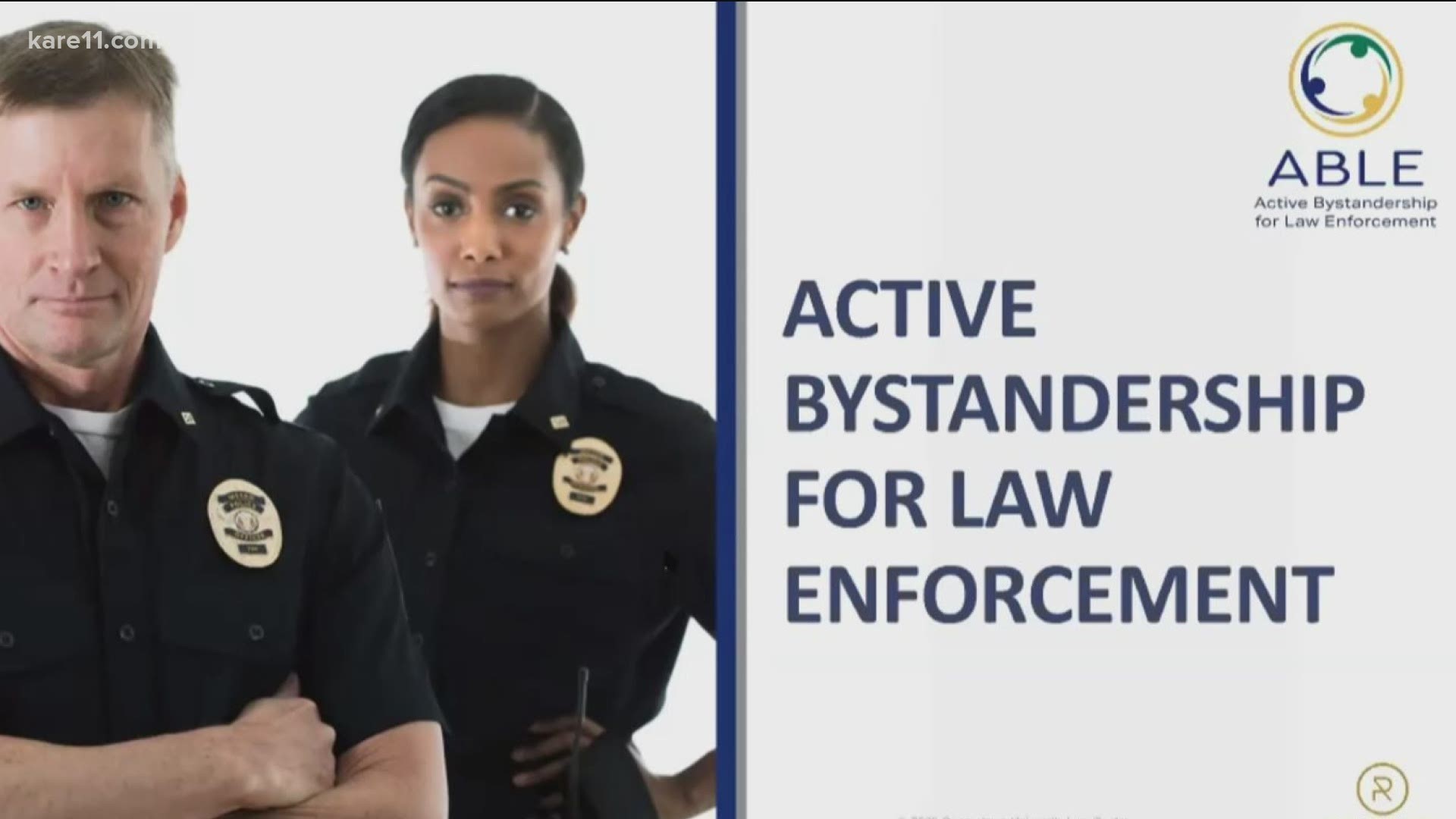Minneapolis Police officers and their training have been in the spotlight recently after how several incidents were handled.
Now the city is considering a new type of training that emphasizes how to better intervene in certain situations before things take a turn for the worst.
With a huge spike in violent crimes, Minneapolis Mayor Jacob Frey and other city leaders unveiled a new safety plan on Monday that focuses on prevention, intervention and enforcement, including implementing the Active Bystandership for Law Enforcement or ABLE.
"We want to get this training to any agency that is really committed to the culture change that is necessary," said ABLE Project Director Lisa Kurtz.
ABLE is rooted in years of research to help people better intervene and prevent harm in certain situations. According to its website, the "ABLE Project guides agencies and communities on the concrete measures that must be in place to create and sustain a culture of peer intervention."
"We take the time to present the science to officers which I think builds buy-in because people see this isn’t something we made up," said Kurtz. "This is built on actual social science, based on brain science, and our real goal here is to help officers protect each other and protect the community."
She says it's used in the airline industry, hospital settings and college campuses and most recently, police departments. Started by psychologist Dr. Ervin Staub after the Rodney King beating, the program was first implemented by New Orleans Police around 2014.
"People came into this class really skeptical, thinking this is just another day of police training and left the class going, that was the best training I've received in my career," said Kurtz.
The training identifies why people sometimes don't intervene, four major social science experiments on what's called the bystander effect and proactive solutions or strategies.
"The three strategies are a direct intervention, a distraction, or delegating the intervention," said Kurtz. "There are lots of people around and you assume that someone else will act and everyone else assumes someone else will act and no one ends up acting."
Agencies that sign up are required to get four recommendation letters, adhere to 10 community standards and participate in surveys that measure whether there's a culture shift in the organization post and pre-training.
ABLE also performs quarterly follow-ups after the training sessions. The first is 20 hours and then each officer completes eight hours with yearly refresher courses. Plus, all of it is free.
"I think a lot of departments have been really interested in showing the community that they're doing something proactive, that they're not waiting for something horrible to happen in their jurisdiction," said Kurtz.
At that Monday news conference, Mayor Frey said he plans to start requiring ABLE training for all sworn personnel in the months ahead.
ABLE is based at the Innovative Policing Program at Georgetown Law. One hundred and sixteen agencies have recently signed-up for the program, including the state of New Jersey and the New York Police Department totaling about 70,000 people.

